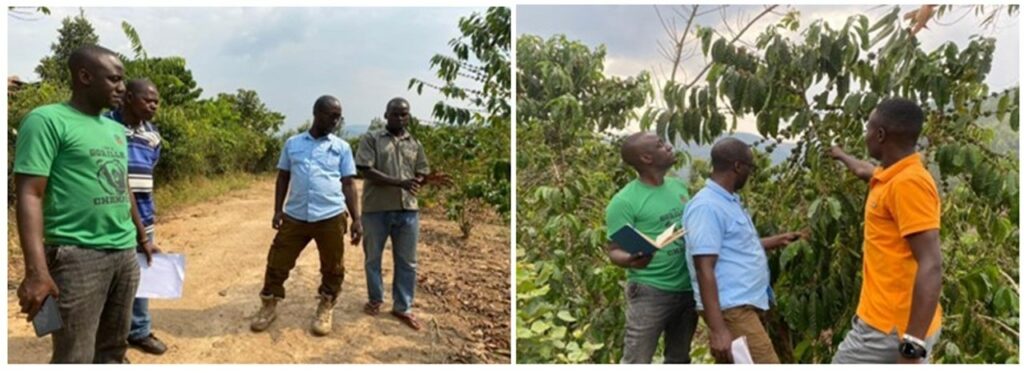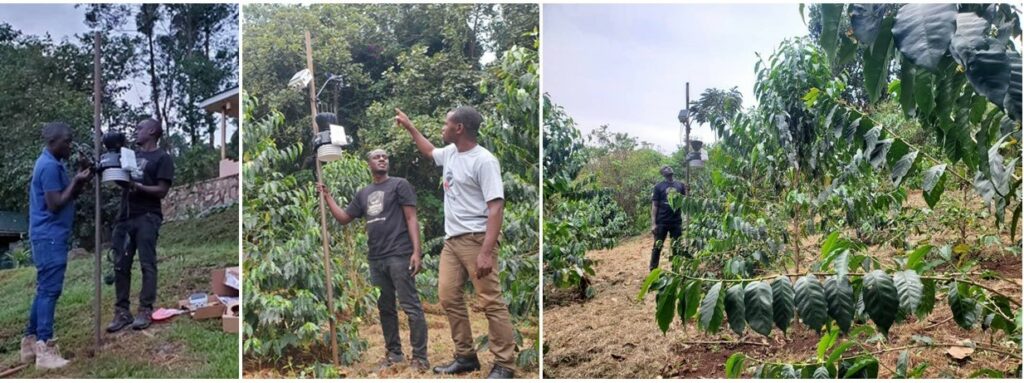The biodiversity conservation is led by CTPH, located in Uganda. The organisation’s vision is to be an internationally renowned leader in gorilla and wildlife conservation by improving the health of wildlife and ecosystems and humans and their livestock in and around Africa’s protected area. This is achieved through a multidisciplinary approach that focuses on preventing and controlling disease transmission between closely genetically related species such as people and gorillas, and cattle and buffalo, and promoting a better quality of life that reduces local communities’ dependence on fragile habitats to meet their basic needs. CTPH conducts research activities study the transmission of virus from interspecies interactions. The expertise in molecular testing and characterisation of virus (such as corona viruses) aids in the development of preventive health strategies. The services offered by CTPH are engaged by the organisation’s social enterprise, Gorilla Conservation Coffee, which supports smallholder farmers on the outskirts of Bwindi Impenetrable National Park (BINP). The support offered by CTPH aids in improved cultivation quality of coffee, bought at an above market price, and, thereby, improving their livelihoods and reducing their dependence on natural resources to meet basic needs of food and fuelwood.
Biodiversity conservation policies and practices – Uganda
Geographical profile
Challenges
The current methodologies adopted by CTPH lacks technological intervention to accurately map and model the landscape of coffee farmers, using GIS like solutions. Additionally, CTPH lacks support in mapping the navigational route for planning and monitoring of animal behaviours. A lack of capacity to process environmental data and develop predictive analytics on climate data services also affects the coffee cultivation.
Expected benefits
The overarching vision of CTPH is structured into three main programs: (i) Gorilla Conservation, (ii) One Health and (iii) Alternative Livelihoods. Participation in NESTLER offers CTPH an opportunity to closely engage with the relevant stakeholders representing research scientists, healthcare professionals, policy makers, and governmental representatives. Collectively, the NESTLER project will develop a sustainability roadmap towards the One Health programme initiative, building on the expertise on identifying zoonotic disease outbreaks.
Pilots
The biodiversity conservation pilots (P.UGA.1 and P.UGA.2) are led by Conservation Through Public Health (CTPH), located in Uganda. The trials will take place at the Bwindi Impenetrable National Park, where coffee is being grown by communities as an alternative livelihood to help mitigate the Human wildlife conflict arising from crop raids by the Gorillas and other wildlife. There will be analysis of suitable areas for coffee production alongside the spatial distribution of actual and potential zones for coffee, their productivity levels and predicted potential yields using accurate technological interventions. IoT devices were installed to monitor the environmental conditions prevailing in the area. Environmental monitoring and resource management are important as the world’s population grows and the demand for resources increases, capacity to process environmental data and develop predictive analytics on climate data services will be important for coffee cultivation as Predictive analytics will use that data driven models to analyse the current and historical data in order to make predictions about future events.


Identification and review of coffee farmers within the landscape

Installation of SynField Equipment to coffee demonstration farm at Bwindi Impenetrable National Park
